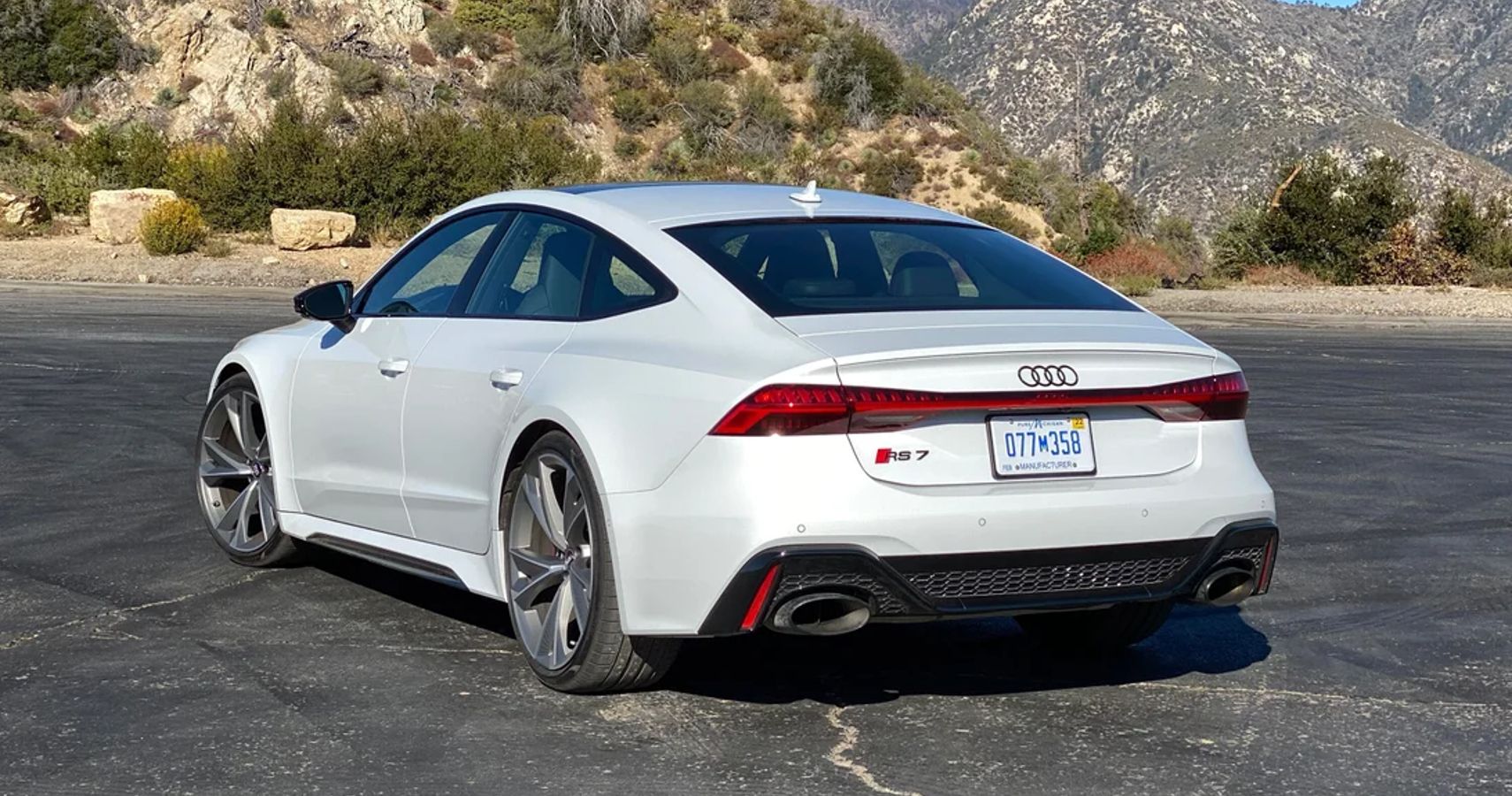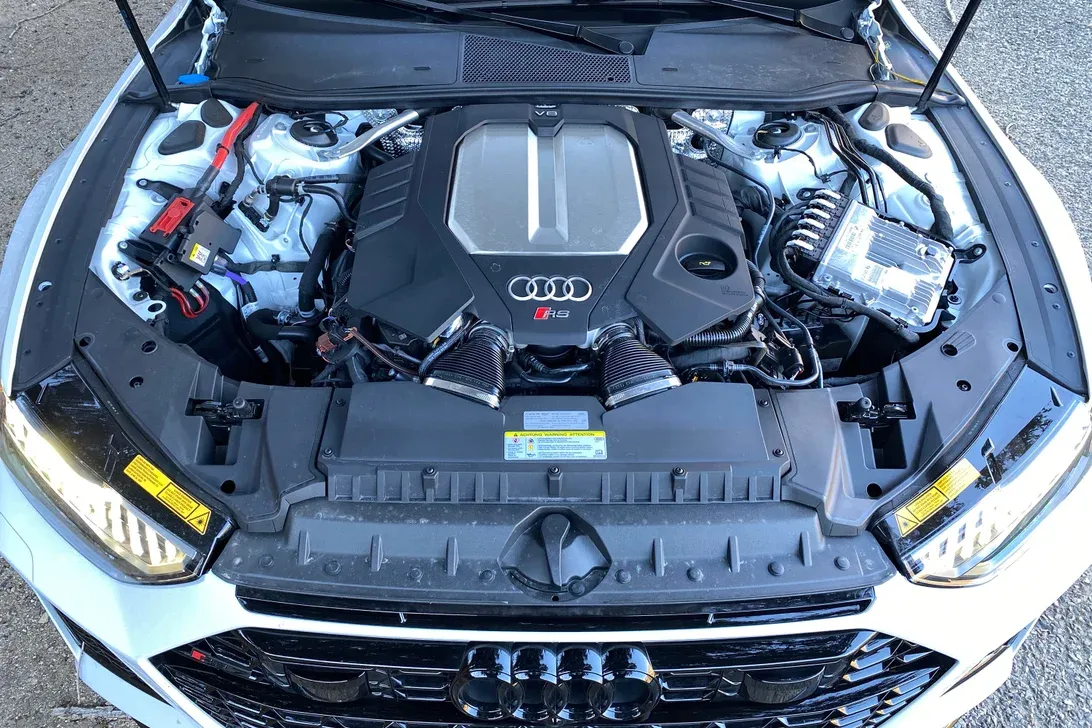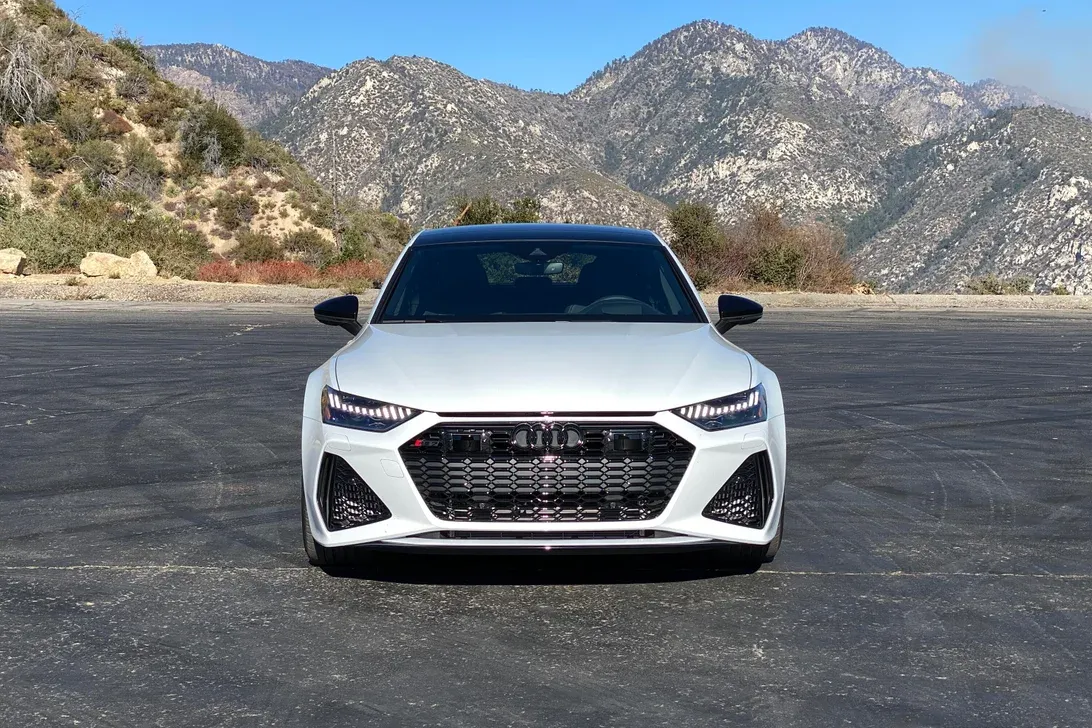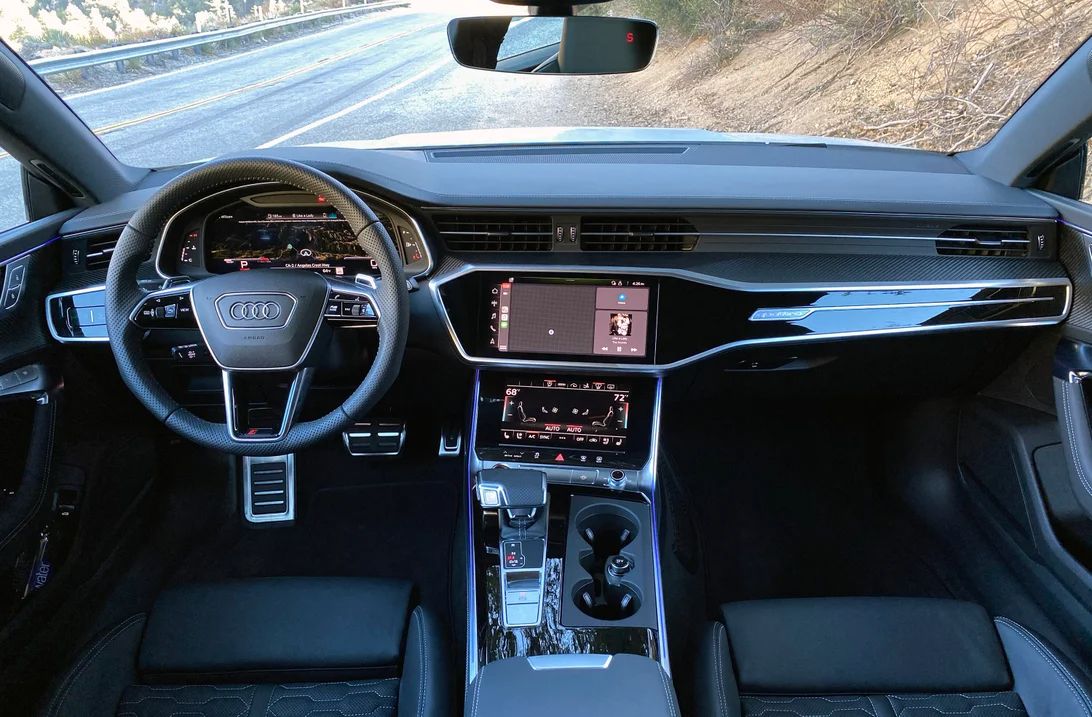After a temporary hiatus, the Audi RS7 is back and in a new avatar for 2021. Now integrating Sportback in its name, the RS7 has accrued unique styling, impressive technology along with its upgraded power. The 2021 RS7 is a stout, challenging four-door sports car with an operational rear seat and functional hatchback. This new model is a powerhouse version of the relatively muted Audi A7. The RS dons more feisty bodywork and has premier high-performance equipment that rallies it to contend with the boisterous rivals from Porsche and Mercedes.
Besides slaying in looks, the highlight feature of the RS7 is its raucous twin-turbo V8 power. Plus, the RS7 is a luxury performance car that's almost impeccable.
What Is The Best Feature Of The RS7?
The RS7’s greatest strength is its potent engine. The fun starts with Audi's 4.0-liter twin-turbo boosted V8 found in many cars, including the RS6 Avant. This engine generates 591 horsepower and 590 lb-ft of torque to all four wheels via the Quattro all-wheel-drive structure, with a 0 to 60 MPH time of just 3.5 seconds.
As a delightful feature, every RS7 gets Audi's complete list of performance hardware, including an electronic rear differential, an adaptive air suspension, and four-wheel steering. The rear-axle steering essentially shortens the wheelbase while slipping through narrow bends. The RS7 is a lithe and supple car, with satisfyingly weighted and responsive steering and robust power from the standard steel brakes. Ceramic brakes with gray calipers are available for $8,500, which are equipped with excellent stopping power. However, this upgrade is not necessary for day-to-day use.
Regardless of the brakes chosen, they're settled behind truly gigantic wheels. The RS7 sports standard 21-inch wheels clad in 275/35 tires, but an optional 22-inch package is wrapped in 285/30 rubber. According to Audi, the former wheels are the smallest-diameter wheels that will clear the car's brakes, and the 22-inch wheels seem excessive by comparison. Thankfully, the air suspension is adjusted to remove a lot of the harshness that might be expected from such a rough wheel-and-tire package. The ride quality is supple on the highway but nice and tight during athletic driving.
A Sporty Profile And Wonderful Design
The RS7 looks sporty, mean, and angular, with wide shoulders, ample hips, and a conventionally attractive Sportback silhouette. The taillights of the new RS7 model are a little old-fashioned, a minor imperfection in the otherwise flawless design. Considering the previous RS7 was too demure-looking, Audi is now flexing its design with the latest model.
Audi's designers have exercised a lot of restraint in sketching the cabin. The numerous angles and styled surfaces add to the sophisticated charm. The interior is similar to the A6 and A7 models, and the general effect is tasteful and modern, with aesthetic accent stitching on the RS-exclusive seats and no surplus buttons, just flat surfaces and screens.
A Comfortable And Tech-Laden Ride
Audi currently has the lead on luxury-car cabin tech, and it's not difficult to see why. Its MMI Touch Response infotainment system is a breeze to operate, with vibrant tiles for the routinely used features, sharp response times, and a comparatively easy-to-use menu system. The 10.1-inch screen in the middle of the dash accommodates the chief multimedia interface, and an 8.6-inch secondary display resides under that. The smaller screen features climate control functions and power buttons for the stop-start system and countless driver-assistance features. There is a handwriting tablet for effortless address entry or destination search.
The MMI interface is solid, but it doesn't even need to be used most of the time because a standard Virtual Cockpit digital gauge hub is offered by Audi, enclosed in a 12.3-inch screen near the steering wheel. This simple tech is a bit old, but the virtual cockpit is still happening, alongside the Google Earth navigation and basic controls for audio, phone, and vehicle data through steering-wheel toggles.
Strangely, while the RS7 comes with Audi's best digital tech wizardries, all of the good driver-assistance equipment has additional costs. Forward collision warning, parking sensors, and a 360-degree camera are standard. Still, lane-keeping assist, traffic sign recognition, full-speed adaptive cruise control, and rear cross-traffic alert are all padlocked in a Driver Assistance Package, amounting to $2,250.
The RS7's biggest rival from Audi is its cousin RS6. The RS7 is slightly more expensive, with a starting price of $115,045, including the destination fee of $1,045 compared with the RS6's $110,045.
The RS7 is overall a winner and better to drive than its closest competitors from BMW or Mercedes. The Audi is utterly more balanced and has the snazzy tech, and the Sportback shape gives it a more roomy cabin, with 24.7 cubic feet stretch behind the back seats and a lot more when folded flat. With its sharp looks, smooth handling, premier cabin tech, and most notably, the powerful engine, the Audi RS7 is one of the best all-around luxury cars that money can buy.




